Organic and biodynamic agricultural and oenological products continue to resonate with a growing number of consumers. But while pleasing the consumer palate is important, it is not the only goal.
For over a hundred years, society has adopted increasingly modern agricultural and oenological practices that while promoting efficiency and maximizing yields and profits, have come with a devastating cost: the Earth’s well being. The mass commercialization of these two industries has caused a rift between society and the Earth and the divide has only widened in recent decades. Demeter endeavors to promote organic and biodynamic methods of farming that replenish and renew, rather than deplete and destroy the land and environment in order to preserve it for future generations. In a nutshell: Sustain the Earth and you sustain yourself. Demeter also supports the adoption of labor laws that protect employees and fairly compensates them for the valuable roles they play in these industries.
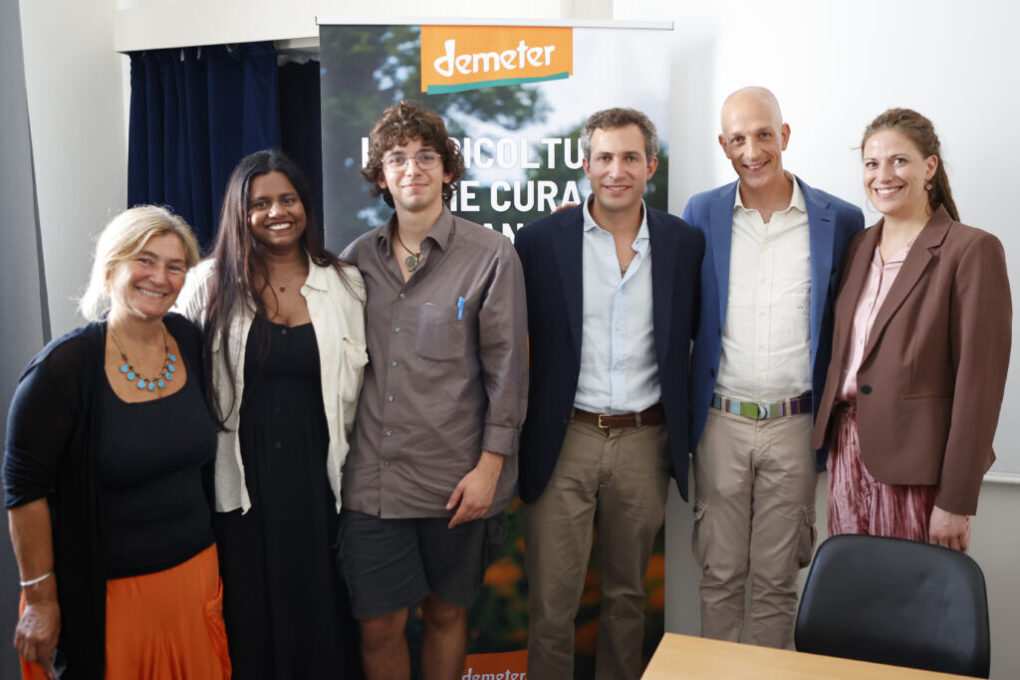
On July 15, 2025 Demeter Associazione Italia introduced their farm tourism initiative during the “L’agricoltura biodinamica Demeter Italia diventa esperienza con l’agriturismo, la buona tavola e le produzioni dei territori (Demeter Italia Biodynamic Agriculture Becomes Experience with Farm Tourism, Good Food and the Productions of the Territories),” press conference at the Foreign Press Association in Rome. According to Demeter Italia Director Giovanni Buccheri, the objective is to offer visitors a hands-on biodynamic agricultural experience at Demeter-certified farms. Individuals potentially interested in the agrotourism experience can conveniently access participating biodynamic and organic farms offering rustic accommodations set in rural landscapes throughout Italy at agriturismi.demeter.it. Tourists can take part in guided food and wine tastings, educational activities, nature hikes, and other activities. There are currently 28 participating farms in Italy involved in biodynamic and organic agricultural training, education, and other initiatives, tourism, art, and social relations all aimed at increasing public knowledge of the interconnectivity between human beings, animals, nature, and the environment.
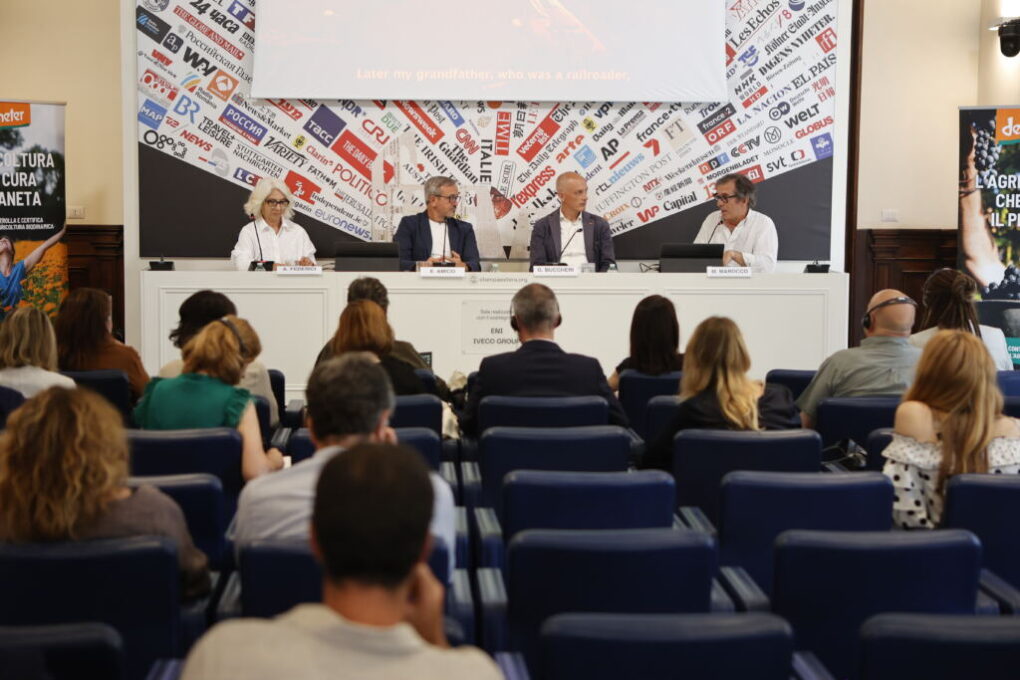

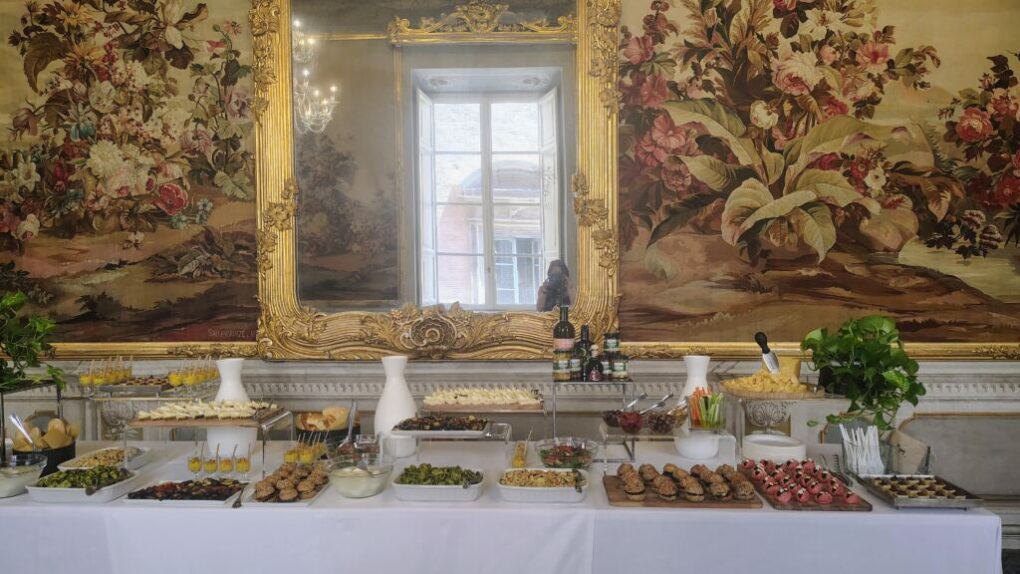
Demeter Italia Chairman and Amico Bio President Enrico Amico outlined the history of Demeter, beginning with its establishment in 1927 in Germany by Rudolf Steiner, to its global expansion into approximately 44 countries. He also emphasized the importance of Demeter-certified Italian product global exports, with around 68% for biodynamic wine, 77% for extra-virgin olive oil (EVOO), 87% for fresh produce and processed goods, and about 98% for fruit processing.
Currently, 30% of Demeter-certified Italian biodynamic wine is consumed domestically, and the aim is to increase the presence of Demeter-certified products in Italy. According to Enrico, a balanced is established through reciprocity when local and international visitors come to Italian farms and witness the planting. cultivation, harvesting, and processing of the biodynamic and organic products that are exported globally.
Anna Federici proprietor of Azienda Agricola Boccea, a biodynamic and organic farm located just outside of Rome city center, provided an overview of her approach to farm tourism. The aim of Azienda Agricola Boccea is to educate visitors about the differences between commercially processed and biodynamically produced food products. Paired tastings of their biodynamic and organic EVOO with bread and other foods produced on their farm allow consumers to learn about while tasting the difference between commercially processed and biodynamically produced food and hopefully understand why the biodynamic approach is important.
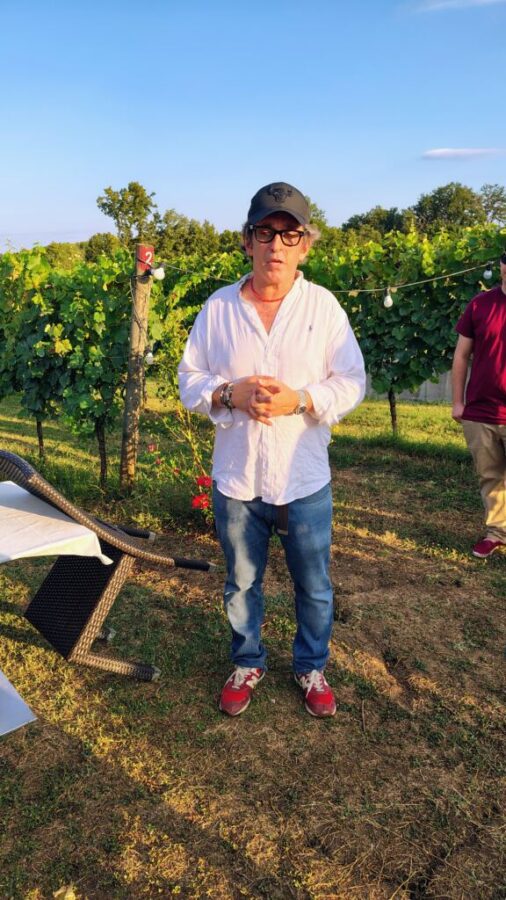
Marco Marrocco who established the biodynamic and organic winery Palazzo Tronconi in the medieval town of Arce, Frosinone in 2007, highlighted the role of wine tourism in spearheading the biodynamic initiative. The winery, a pioneer in winemaking in an area not traditionally known for wine production, shines a spotlight on Arce’s cultural identity and agricultural potential.
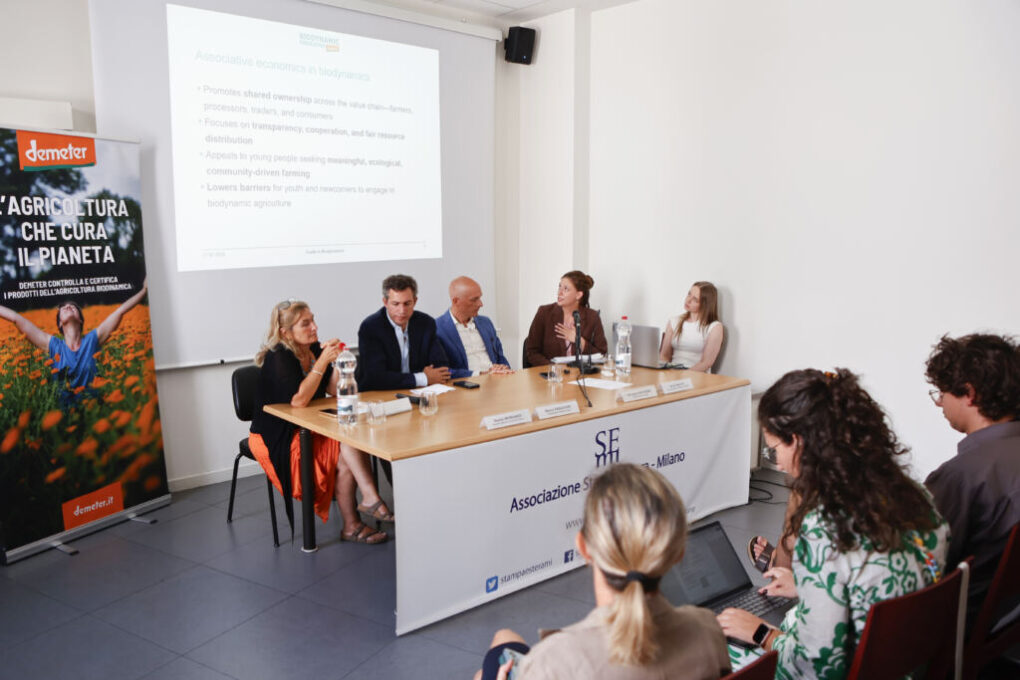
The conference continued in Milan, where (Biodynamic Federation Demeter International (BFDI) Vice President Marco Paravicini emphasized the need to alter the public perception of farming as one dominated not by factory-automated processes and commercial manufacturing but a living, breathing cooperative involving a harmonious partnership between farmers, communities, nature, and land. It is essential to communicate this concept to a younger international audience because in the end, continuous global participation is necessary in order for this to succeed.
(BFDI Communication Coordinator Holly Martin pinpointed the pivotal role that younger generations are playing in biodynamic agriculture. She highlighted the growing interest among people under the age of 35 in Demeter’s biodynamic farming program in the United Kingdom (Biodynamic Agricultural College), the United States (Biodynamic Foundations Training), Germany (Junges Demeter), and Scandinavia ( BINGN). International biodynamic farm participation has increased 57%, bringing the total number of Demeter-certified farms to 7400+, with 41 member organizations and 55 associations in 41 countries. Demeter has launched “Feel the Joy,” a campaign highlighting the role of human beings as custodians of the Earth. Equally important to the harmonious relationship between human beings and the environment are the connections that tourists, students, and farmers form with each other while learning about and participating in biodynamic agricultural practices.
Danila Mongardi of”Al di là del Fiume” (Beyond the River), offers a summer camp for young people at her biodynamic farm where Worldwide Opportunities on Organic Farm (WWOOF) volunteers are invited to work on the farm in exchange for room and board. A biodynamic agricultural school is being planned to help at-risk youth experience the potentially life-changing benefits of living in harmony with the land.
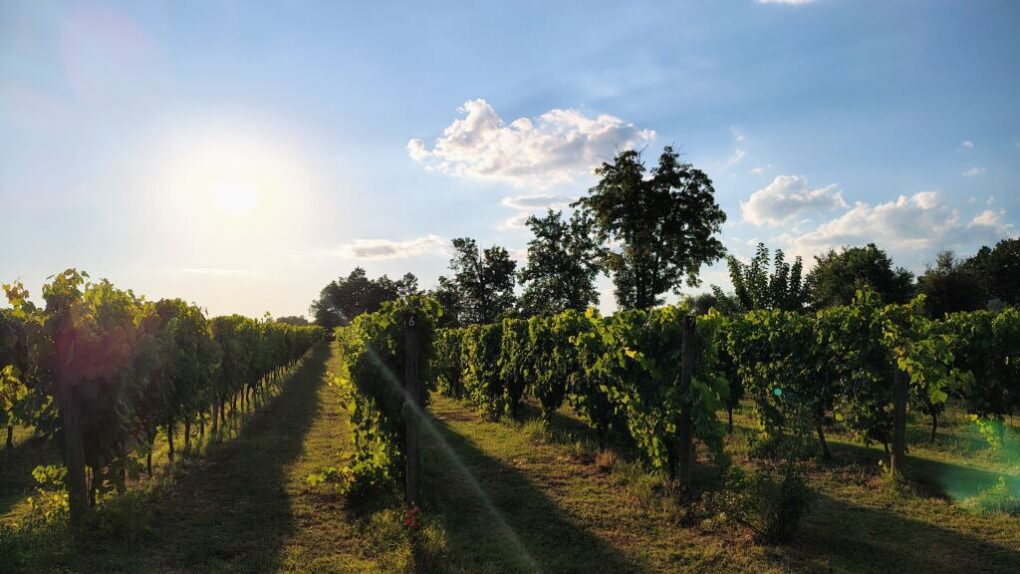
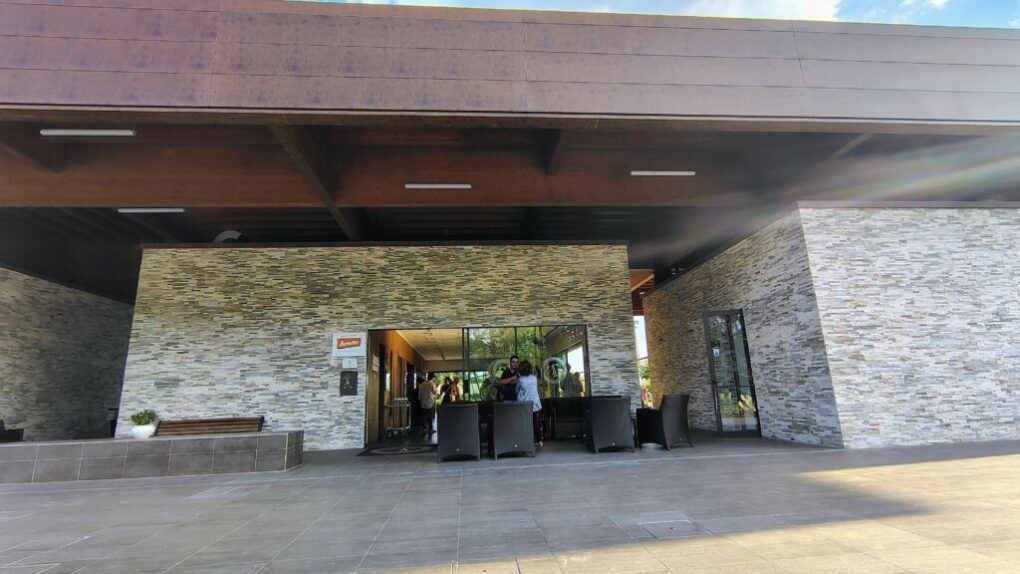

If you are in Rome and looking for a one-day getaway, consider the two-hour drive to visit Palazzo Tronconi. Dine indoors and enjoy unobstructed views of the vineyards while enjoying biodynamically and organically produced fare and sipping sparkling, white and red wines crafted from ancient Italian grapes like Pampanaro, Capolongo, and Maturano that you might not find anywhere else in the world.
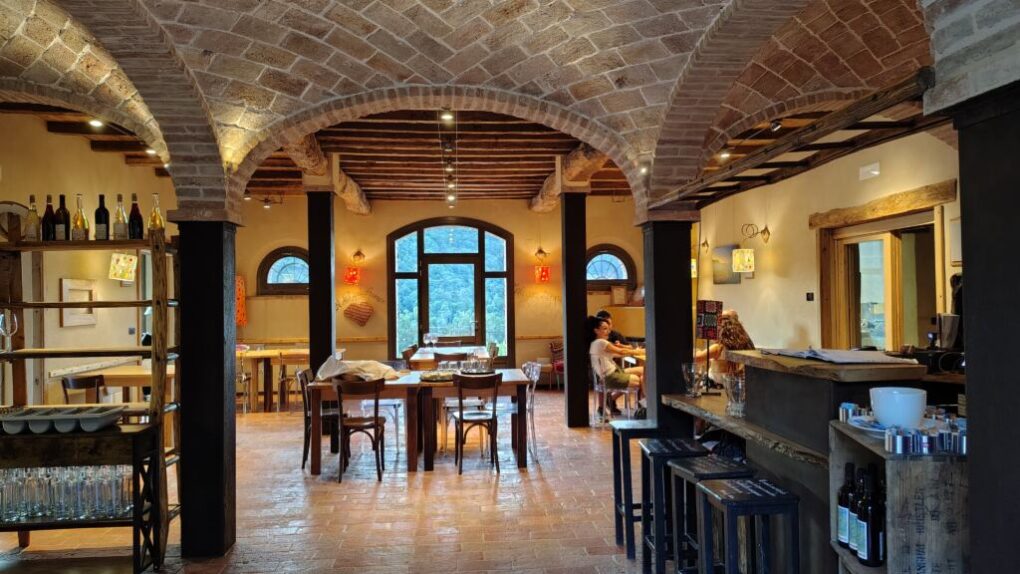
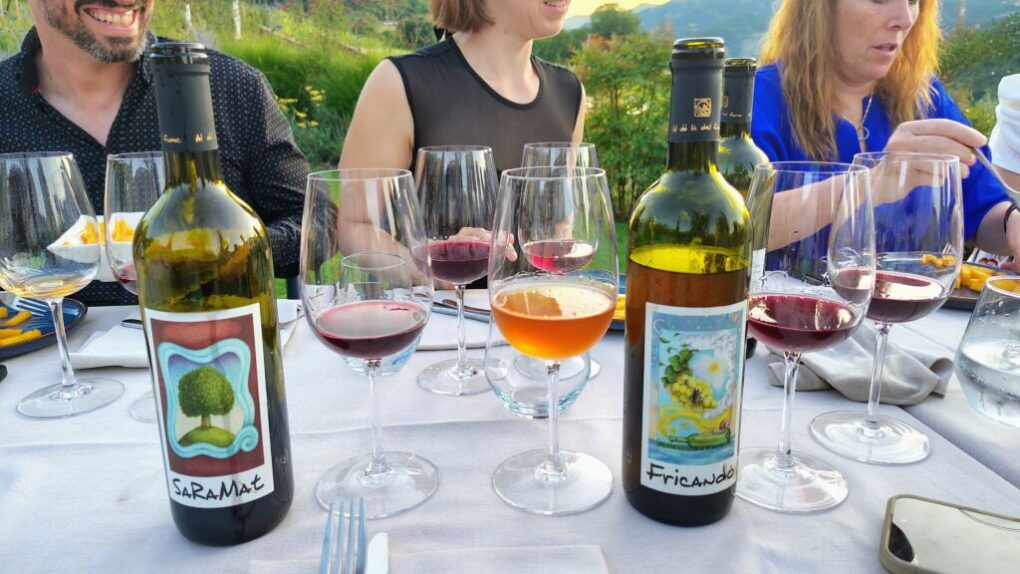
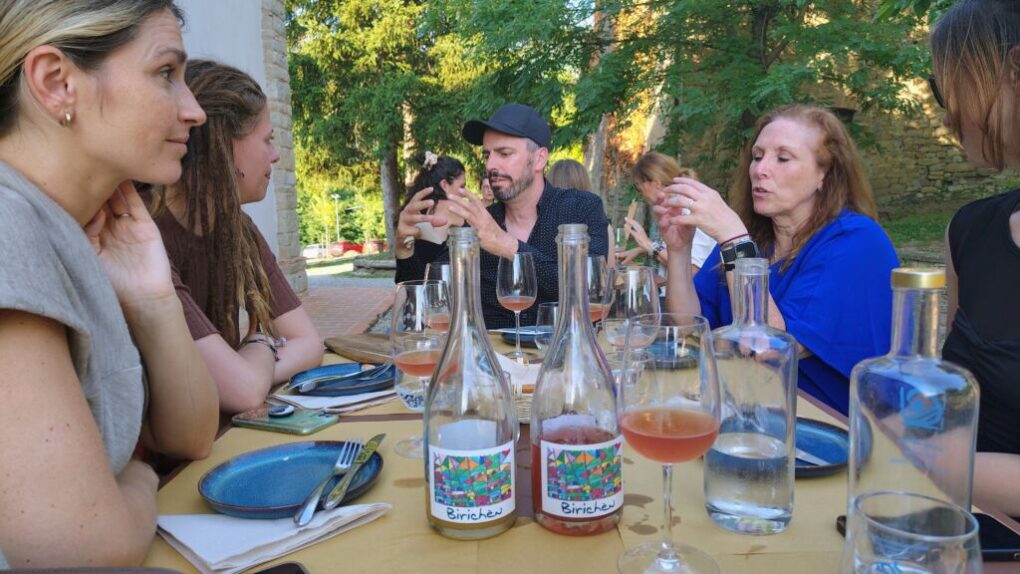
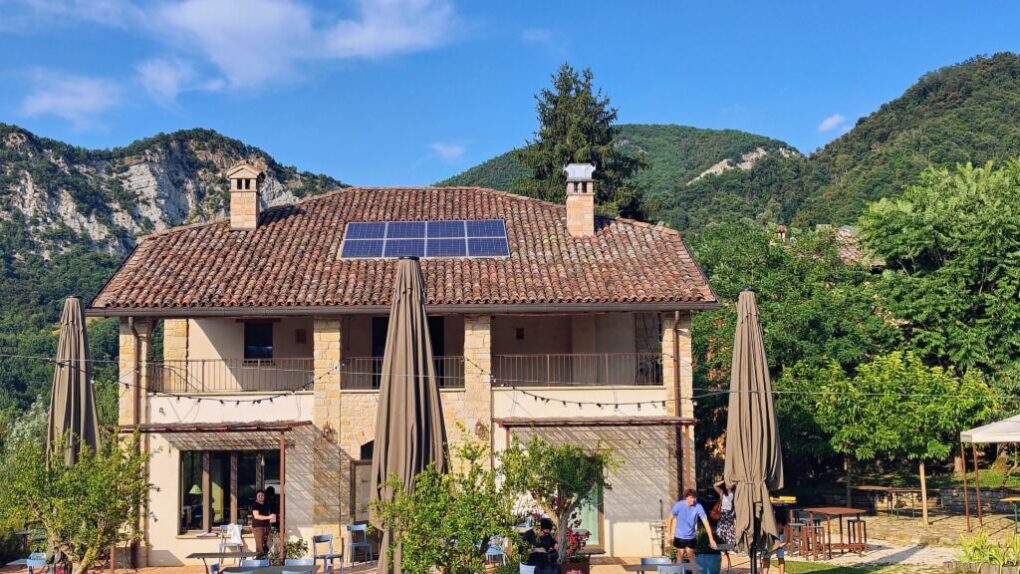
Likewise, if you are in Milan and would like a true farm-to-table experience, head to Osteria Al di là del Fiume in Marzabotto, Bologna and enjoy biodynamic and organic fare paired with refreshing Pet-Nat white and rose’ produced using the ancestral method (spontaneous fermentation), and bright and juicy Barbera fermented in stainless steel and in amphora.

Be First to Comment